#tanikawa shuntaro
Explore tagged Tumblr posts
Text

散文 谷川俊太郎 晶文社 ブックデザイン=平野甲賀
32 notes
·
View notes
Text

Shuntaro Tanikawa - Two Billion Light-years of Solitude
#poems and quotes#poems and fragments#japanese#japanese poem#love quote tumblr#love poem#contemporary poetry#dark academic aesthetic#dark academy#dark acamedia#darkacademism#poetry#poem#quotes#shuntaro tanikawa#poems and poetry
37 notes
·
View notes
Text

日々の地図 谷川俊太郎 集英社 カバー・本文写真=谷川俊太郎、装幀・写真レイアウト=菊地信義
11 notes
·
View notes
Text

Fanart tribute to Shuntarō Tanikawa who passed away on November 13. He was theme song lyricist for 1963 Astro Boy.
15 notes
·
View notes
Text
youtube
R.I.P 谷川俊太郎 / Shuntaro Tanikawa
小室等 / Hitoshi Komuro - 死んだ男の残したものは / All That the Man Left Behind When He Died Music: 武満徹 / Toru Takemitsu Words: 谷川俊太郎 / Shuntaro Tanikawa
死んだ男の残したものは ひとりの妻とひとりの子ども 他には何も残さなかった 墓石ひとつ残さなかった
死んだ女の残したものは しおれた花とひとりの子ども 他には何も残さなかった 着もの一枚残さなかった
死んだ子どもの残したものは ねじれた脚と乾いた涙 他には何も残さなかった 思い出ひとつ残さなかった
死んだ兵士の残したものは こわれた銃とゆがんだ地球 他には何も残せなかった 平和ひとつ残せなかった
死んだかれらの残したものは 生きてるわたし生きてる���なた 他には誰も残っていない 他には誰も残っていない
死んだ歴史の残したものは 輝く今日とまた来るあした 他には何も残っていない 他には何も残っていない
18 notes
·
View notes
Text
youtube
HALCALI - 芝生 feat.谷川俊郎
4 notes
·
View notes
Text

Sonnet 58 | A poem by Shuntaro Tanikawa, 1953 >
People can also contain distances inside themselves, which is why they go on yearning…
*Herbert List, Park of the Palazzo Orsini, Bomarzo, near Rome, Italy, 1952
5 notes
·
View notes
Text

(https://www.fiat-jp.com/ciao/fiat-ownerinterview05_500_shuntaro-tanikawa/)
Shuntaro Tanikawa
2 notes
·
View notes
Photo
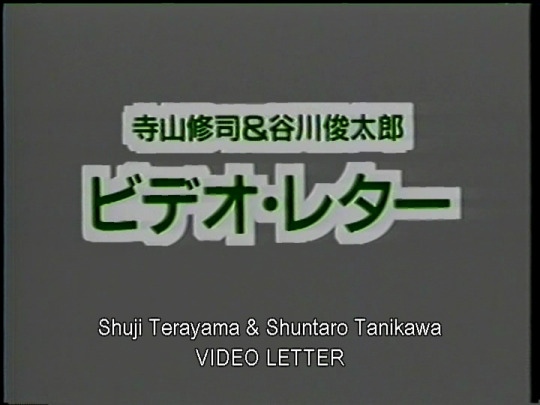
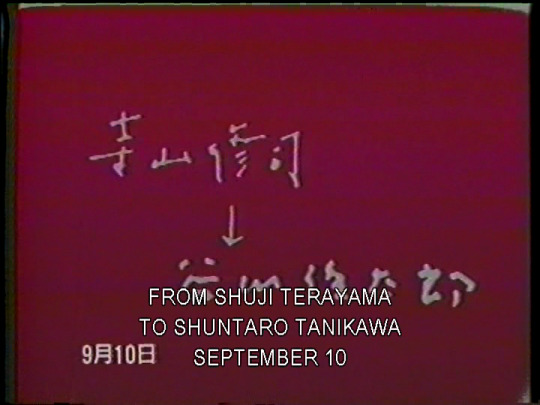
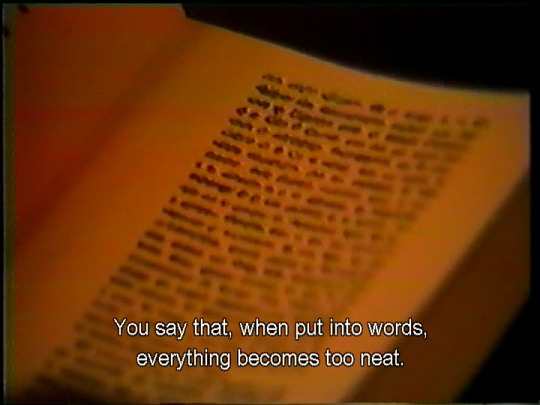


17 notes
·
View notes
Text
Weekend treat: revisit MOMAT for a new exhibition dedicated to haniwa and dogu and learn about the modern history of such earthenware and its influence on the Japanese society!
19/10/2024

It had been a year since I went to this art museum called MOMAT, which stands for National Museum of Modern Art, Tokyo, located right in front of The Imperial Palace, for the exhibition devoted to Japanese important cultural properties; then, I came to be fond of Japanese modern art.
So, I visited a new show focusing on dogu and haniwa, both of which are widely considered as the symbols of Japanese fundamental culture, for this time.
Personally, I prefer dogu to haniwa in terms of design for no specific reason, but I might have been influenced by a series of lectures on Taro Okamoto, a Japanese modern artist and an advocate of the theory of Jomon pottery, in college. Whenever I see Jomon pottery, I get amazed at the fact that people from the 10th century B.C. did intend to embellish earthenware like we do today.
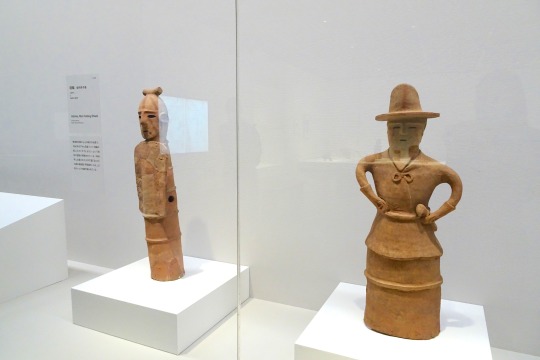
According to the captions, those above were assumed to be made in the 500s. Once I came across them, I got interested in terms that both of them were wearing hats and found that rather cute. I gradually understood why so many people tended to like haniwa better; and I came up with the idea that haniwa and Japanese mascots had a lot in common.

The works above were by the Japanese photographer Ken Domon(1909-1990), who is one of my favorite photographers. He is well-know for photographs of statues of buddha and temples in Kyoto. I was a bit surprised at those covers/photos because they were slightly far from his typical attitude toward photography; Domon wouldn't rely on such visual effects as double exposure but to pursue something from objects in themselves. Therefore, if you keep staring at his pictures, you might come to see something intangible, spiritual from them.
Getting back on track, I learned about how haniwa had affected the Japanese citizens and been utilized for WWⅠ, which I hadn't heard of before. Also, many Japanese artists in the 20th century had been so inspired by them that they were keen to create pieces of art themed on haniwa in a variety of ways. There was a poem about them printed on the wall at the venue.

You were born directly out of the earth, being a human before mankind appeared Because Gods couldn't give you finishing touches, you can boast your beauty in simplicity and health You can accommodate the universe from the poem "Haniwa" by Shuntaro Tanikawa
Haniwa at large have three holes for the eyes and mouth; these characteristics might be regarded as possibility of absorbing anything around them through the holes from a poet's perspective. The holes, or lacking parts, are supposed to be fulfilled with all things in nature in the first place, I reckon. Haniwa can digest things regardless of what they need for living, because the holes don't have lids to rule out unlike humans, which I find worth learning from. That's so profound.
#japan#weekend treat#short trips#tokyo#museum#art exhibition#archeology#haniwa#dogu#ken domon#taro okamoto#shuntaro tanikawa#history#earthenware#takebashi#pottery#MOMAT
1 note
·
View note
Photo
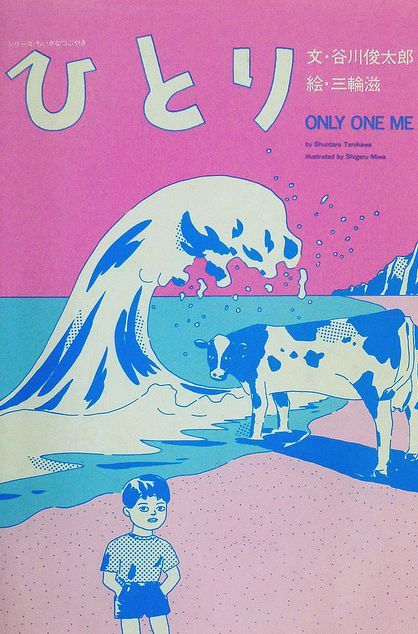
1 note
·
View note
Text

魂にメスはいらない ユング心理学講義 LECTURE BOOKS 河合隼雄+谷川俊太郎 朝日出版社 装幀=粟津潔
#魂にメスはいらない ユング心理学講義#魂にメスはいらない#LECTURE BOOKS#hayao kawai#河合隼雄#shuntaro tanikawa#谷川俊太郎#kiyoshi awazu#粟津潔#anamon#古本屋あなもん#あなもん#book cover
52 notes
·
View notes
Text
r.i.p. Shuntarō Tanikawa

Epitaph for "Poet's Tomb" - Shuntaro Tanikawa
Translation: Takako U. Lento
88 notes
·
View notes
Text
Shuntaro Tanigawa (1931-2024)

youtube
Sources: Hachima Kiko, Kyodo News, Anime News Network
The man who wrote the lyrics for the legendary Astro Boy theme song, Shuntaro Tanigawa, passed away of old age on November 13, 2024 at the age of 92.
Tanigawa also wrote the lyrics for the theme songs of the Big X anime, the 2004 Phoenix anime, Howl's Moving Castle, and also did the screenplay for The Phoenix: Chapter of Dawn film.
From Anime News Network:
Tanigawa was born in Tokyo, and his father was Japanese philosopher Tetsuzo Tanikawa. Shuntaro Tanigawa began writing poems in his teens, and published his first poetry collection, Niju Oku Konen no Kodoku (Two Billion Light-Years of Solitude), when he was 20 in 1952.
The writer was well-known for his poems, translations, and essays. His poetry book Floating the River in Melancholy won the American Book Award in 1989. He has written over 60 poetry books and is also known for his translations of Charles Schulz's Peanuts comic and Mother Goose nursery rhymes into Japanese.
His numerous accolades include awards at The 75th NHK Broadcasting Culture Awards, the Zhongkun International Poetry Award, and the Noma Children's Literature Prize.
51 notes
·
View notes
Text
・꙳𓂂•.♡・❥・♡꙳𓂂•.
We might meet again someday… between dreams and dawn…
-Shuntaro Tanikawa


•.♡.•.・❥・.˚✭..•.
Mika Hashizume (Mikah) is Japanese American pop singer from Hawaii. His music is soothing for the soul...
youtube
16 notes
·
View notes
Text

Eyescream Feb 2015
Great Dinosaur Expo
Masakatsu Shimoda x Shuntaro Tanikawa x Meisa Fujishiro
Dinosaur man, photography and poetry.
Masakatsu Shimoda is a painter who continues to create dinosaurs on canvas as his life's work. Photographer Meisa Fujishiro continues to photograph the dynamic dinosaur-people while waiting anxiously for the parcels he delivers in Okinawa. And poet Shuntaro Tanikawa dedicates poetry to those photographs. The "Dinosaur Mask," a serial project in the fashion culture magazine "HUgE," has finally been published as a book titled "Dinosaur Human." To coincide with the publication, an event will be held at Shibuya Parco Museum. The photos and poems included in the book "Dinosaur Human," as well as dinosaurs created by Masakatsu Shimoda, will all be gathered together. The book "Dinosaur Human" will also be released in advance, and a participation event for visitors is also planned. Come meet the dinosaurs created by these three people in Shibuya.
#my scans#fashion#avantgarde#japanese fashion#2010s fashion#comme des garçons#comme des garcons homme plus#dinosaur#sculptor#sculpture#art
8 notes
·
View notes